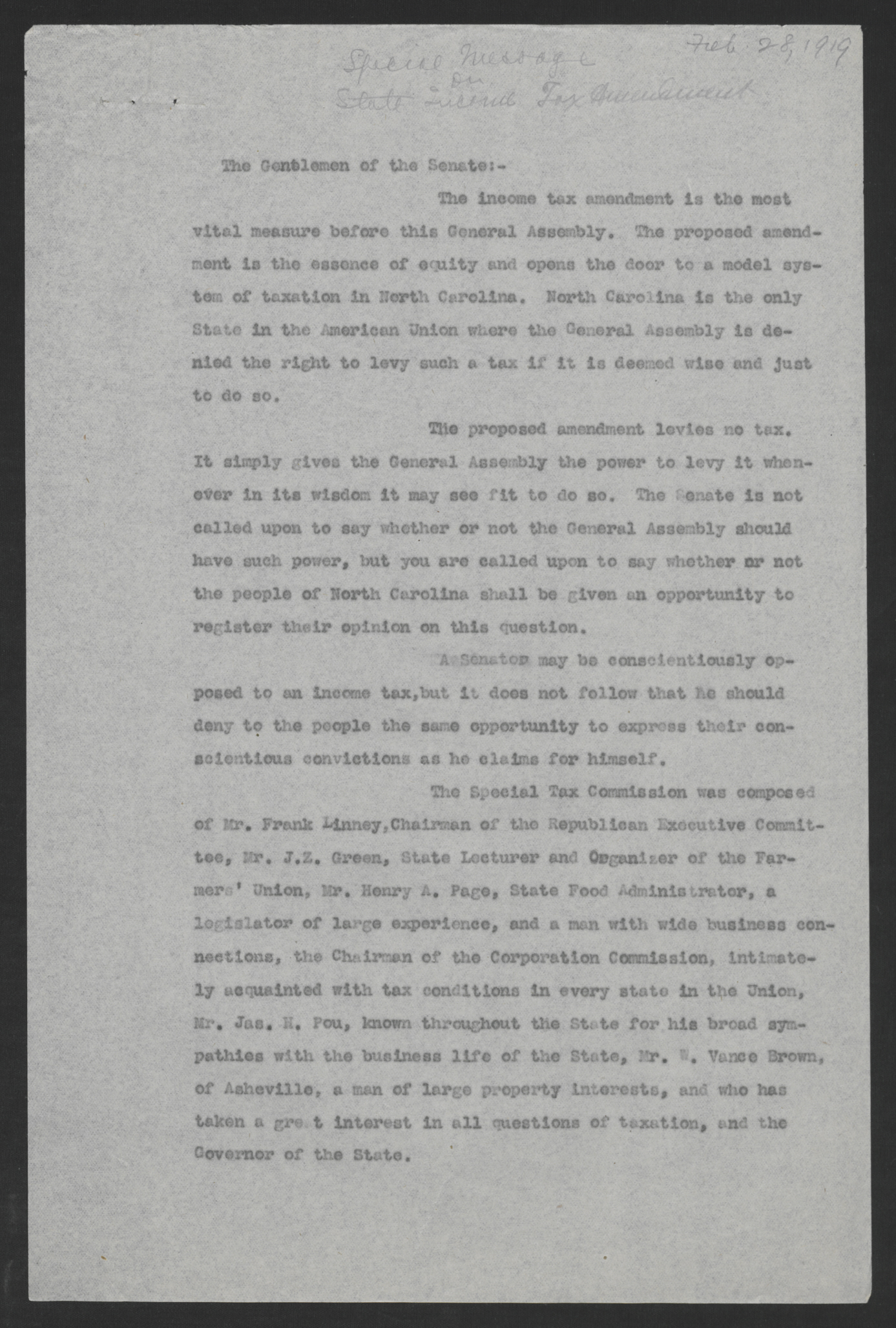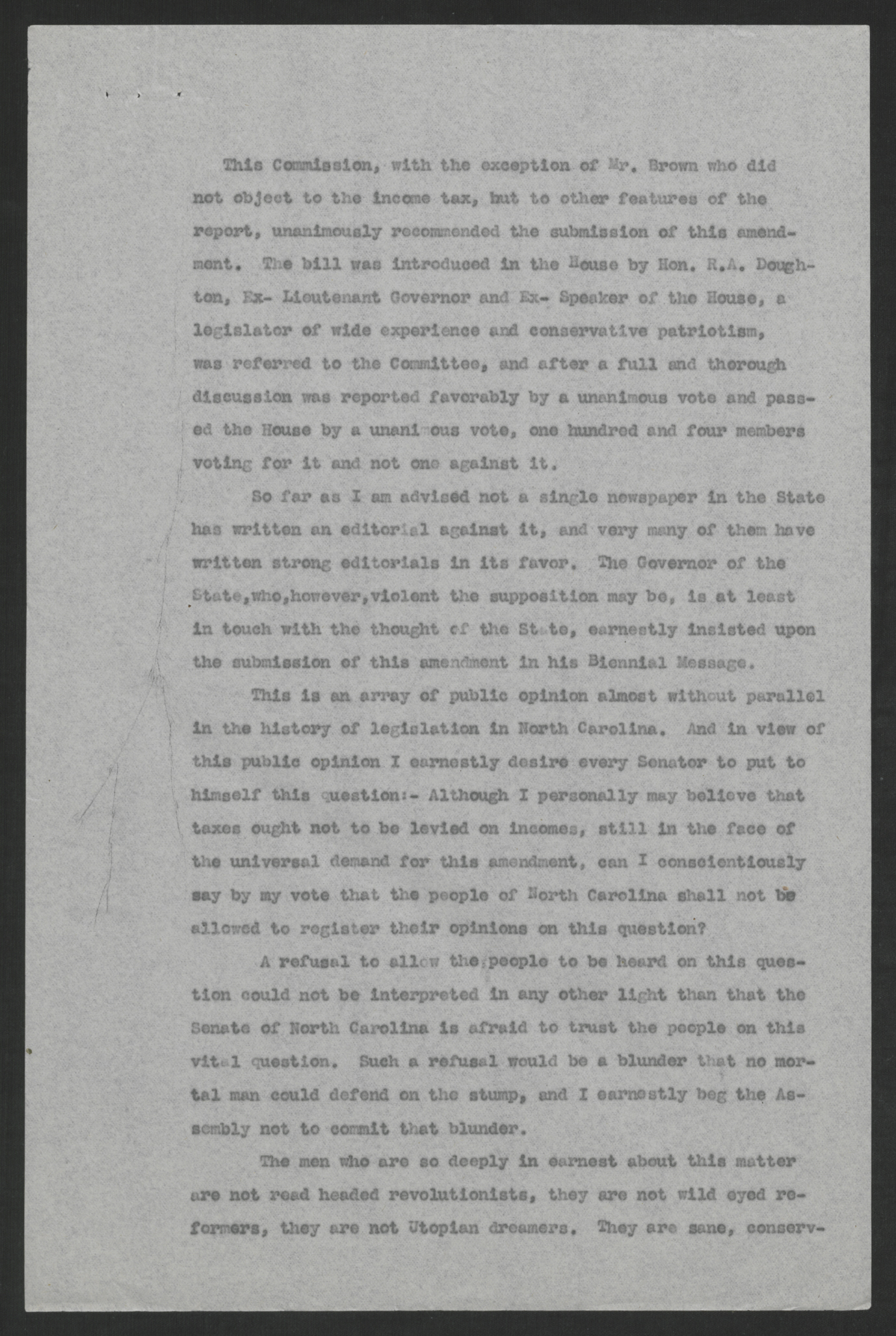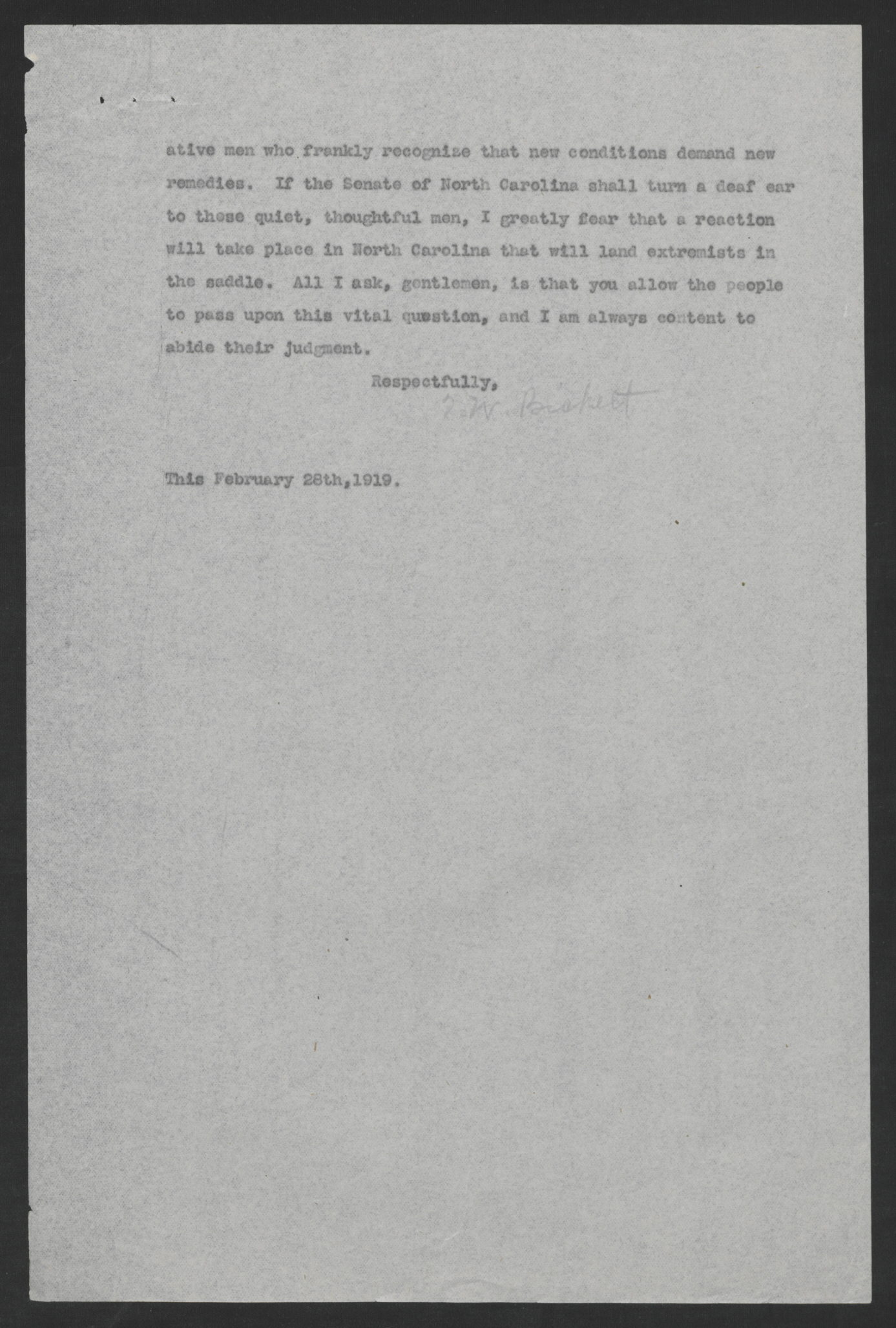<Feb 28, 1919>
<Special Message
on
State Income Tax Amendment>
The Gentlemen of the Senate:-
The income tax amendment is the most vital measure before this General Assembly. The proposed amendment is the essence of equity and opens the door to a model system of taxation in North Carolina. North Carolina is the only State in the American Union where the General Assembly is denied the right to levy such a tax if it is deemed wise and just to do so.
The proposed amendment levies no tax. It simply gives the General Assembly the power to levy it whenever in its wisdom it may see fit to do so. The Senate is not called upon to say whether or not the General Assembly should have such power, but you are called upon to say whether or not the people of North Carolina shall be given an opportunity to register their opinion on this question.
A Senator may be conscientiously opposed to an income tax, but it does not follow that he should deny to the people the same opportunity to express their conscientious convictions as he claims for himself.
The Special Tax Commission was composed of Mr. Frank Linney, Chairman of the Republican Executive Committee, Mr. J. Z. Green, State Lecturer and Organizer of the Farmers' Union, Mr. Henry A. Page, State Food Administrator, a legislator of large experience, and a man with wide business connections, the Chairman of the Corporation Commission, intimately acquainted with tax conditions in every state in the Union, Mr. Jas. H. Pou, known throughout the State for his broad sympathies with the business life of the State, Mr. W. Vance Brown, of Asheville, a man of large property interests, and who has taken a great interest in all questions of taxation, and the Governor of the State.
This Commission, with the exception of Mr. Brown who did not object to the income tax, but to other features of the report, unanimously recommended the submission of this amendment. The bill was introduced in the House by Hon. R. A. Doughton, Ex-Lieutenant Governor and Ex-Speaker of the House, a legislator of wide experience and conservative patriotism, was referred to the Committee, and after a full and thorough discussion was reported favorably by a unanimous vote and passed the House by a unanimous vote, one hundred and four members voting for it and not one against it.
So far as I am advised not a single newspaper in the State has written an editorial against it, and very many of them have written strong editorials in its favor. The Governor of the State, who, however, violent the supposition may be, is at least in touch with the thought of the State, earnestly insisted upon the submission of this amendment in his Biennial Message.
This is an array of public opinion almost without parallel in the history of legislation in North Carolina. And in view of this public opinion I earnestly desire every Senator to put to himself this question:- Although I personally may believe that taxes ought not to be levied on incomes, still in the face of the universal demand for this amendment, can I conscientiously say by my vote that the people of North Carolina shall not be allowed to register their opinions on this question?
A refusal to allow the people to be heard on this question could not be interpreted in any other light than that the Senate of North Carolina is afraid to trust the people on this vital question. Such a refusal would be a blunder that no mortal man could defend on the stump, and I earnestly beg the Assembly not to commit that blunder.
The men who are so deeply in earnest about this matter are not read headed revolutionists, they are not wild eyed reformers, they are not Utopian dreamers. They are sane, conservative men who frankly recognize that new conditions demand new remedies. If the Senate of North Carolina shall turn a deaf ear to these quiet, thoughtful men, I greatly fear that a reaction will take place in North Carolina that will land extremists in the saddle. All I ask, gentlemen, is that you allow the people to pass upon this vital question, and I am always content to abide their judgment.
Respectfully,
<T. W. Bickett>
This February 28th, 1919.







